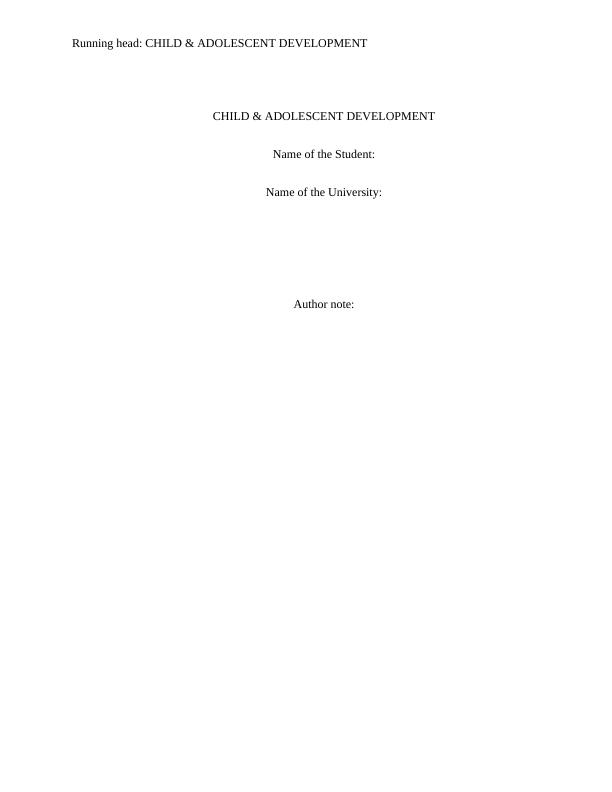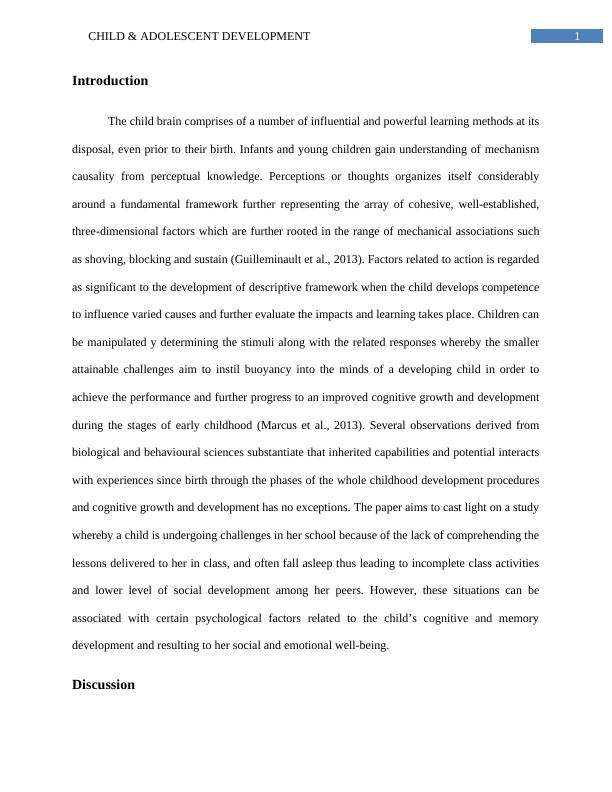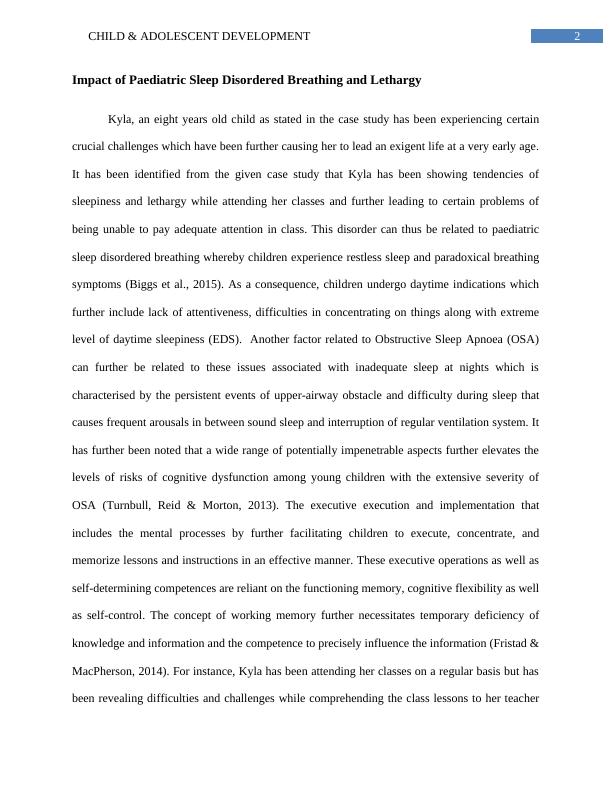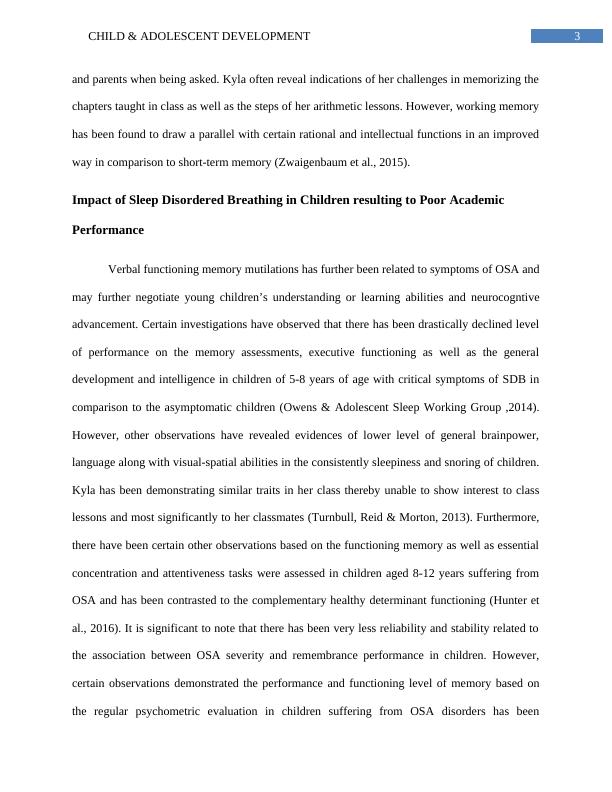Child & Adolescent Development: Impact of Sleep Disordered Breathing and Working Memory
Write a response to a given scenario, drawing from three developmental themes to explain behavior and justify the response.
12 Pages3146 Words180 Views
Added on 2023-06-12
About This Document
This article discusses the impact of sleep disordered breathing and working memory on child and adolescent development. It explores the case of Kyla, an eight-year-old child who is experiencing challenges in school due to her inability to comprehend lessons and often falls asleep in class. The article also discusses the impact of sleep disordered breathing on poor academic performance and the association of working memory and cognitive functioning in children. It concludes by exploring treatments to lessen the rate of disorders among children with OSA symptoms.
Child & Adolescent Development: Impact of Sleep Disordered Breathing and Working Memory
Write a response to a given scenario, drawing from three developmental themes to explain behavior and justify the response.
Added on 2023-06-12
ShareRelated Documents
End of preview
Want to access all the pages? Upload your documents or become a member.
Obtain some figure for obesity amongst children in England (Google on national child mesurement programme)
|1
|408
|42
Child psychology: a scientific study of developmental changes
|16
|4815
|82
Child Growth and Development Assignment
|14
|2995
|79
Mental Health - Assignment Sample
|8
|2135
|118
Understanding Children’s Worlds: Historical Development, Contemporary Discourses, and Impact on Society
|9
|2686
|203
Methodological Challenges in Investigating Cognitive Development in Infants
|13
|3786
|85




